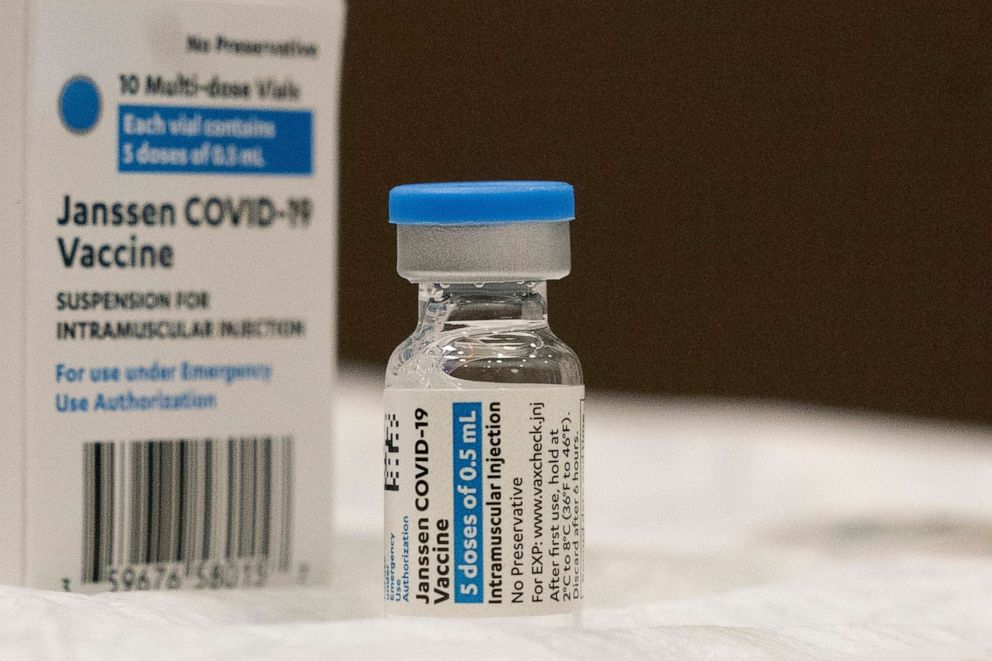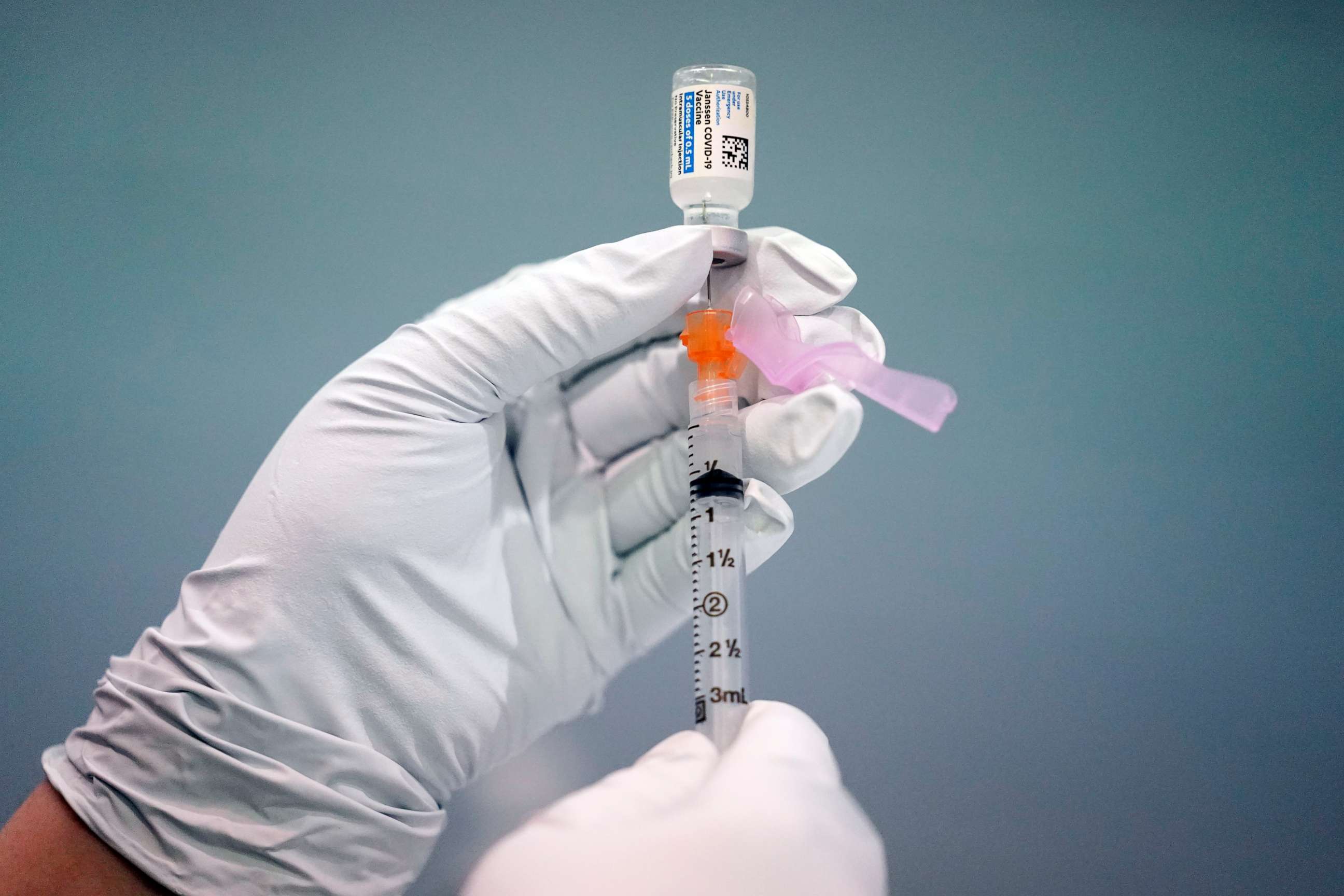Johnson & Johnson vaccine pause may have had important benefit
Doctors now know what to look for in patients receiving the vaccine.
A nearly two-week pause of the Johnson & Johnson vaccine has ended and shots will begin again soon. Dr. Rochelle Walensky, the director of the Centers for Disease Control and Prevention Director, endorsed a recommendation Friday by an independent committee to add a warning to the single-dose vaccine and resume injections.
The warning will mention an association with the vaccine and an extremely rare blood clot condition called thrombosis with thrombocytopenia syndrome, or TTS.
Specialists say the warning isn't just a regulatory maneuver to please lawyers or to make clear the benefits outweigh the one-in-a-million risk. Instead, despite the disruption caused by the pause, there has been one clear public health benefit: Doctors are now aware of this rare complication, and how best to treat it.
"[The pause] has brought the condition to public and broader scientific attention," said Dr. Laura Finn, director of hematology and bone marrow transplants at Ochsner Health.
The handful of initial cases were discovered when entered into the Department of Health and Human Services' national Vaccine Adverse Event Reporting System database. They were investigated rapidly and revealed that if you get the J&J shot, you should be aware of the symptoms. Doctors will also be on alert for how to treat this uncommon disorder and, perhaps, just as importantly how not to treat it.
"This is a treatable condition if you recognize it right away," Dr. Francis Collins, director of the National Institutes of Health, told "Good Morning America" Friday prior to the recommendation. "One of the reasons I think it's been good to have this pause is to get everybody apprised of that so that all physicians know this is something to watch out for and can be prepared to treat it appropriately if it should happen again in the future."

The pause will allow the CDC to offer recommendations and guidelines for doctors and patients, according to Dr. Simone Wildes, an infectious disease specialist at South Shore Health in Massachusetts.
Crucially, doctors have already been warned not to use a common blood thinner called heparin, which might accelerate the problem.
"Until we have a full grasp on this interplay of the vaccine, the blood system and anticoagulation, it's best to avoid heparin when treating blood clots possibly related to a COVID-19 vaccine and treat with alternative anticoagulation medications and possibly IVIG (intravenous immunoglobulin) instead," Finn told ABC News.
Meanwhile, anyone suspected of having a rare blood clot can be given a blood test screen for PF4 enzyme-linked immunosorbent, and consult with a hematologist that specializes in these types of clotting events.
Patients who get the J&J vaccine now know that the symptoms to watch out for are different than typical post-vaccine discomfort like a sore arm or flu-like symptoms that come on within 48 hours after the injection and usually go away within days.
The more rare, but concerning clots seem to come on within six to 15 days after injection and may include a persistent headache, a full-body rash, swelling, abdominal pain, leg pain and or shortness of breath. These are the symptoms for which you should contact your doctor immediately.

This warning is meant to empower patients and health care workers alike, because although the risks from the vaccine are extremely rare, the risk of complications from COVID-19 are significant.
"The risk of thrombosis with COVID-19 infection far outweighs the risk with any of the vaccines," said Dr. Carol Gonsalves, a thrombosis expert and associate professor of medicine at the University of Ottawa. "It is in our best interest for personal safety but also our civic duty to be vaccinated."
Karine Tawagi, M.D., is a hematology and oncology fellow at Ochsner Medical Center in New Orleans and a contributor to the ABC News Medical Unit.




